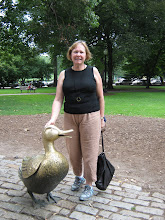In the Chinese Zodiac, it is The Year of the Horse.
The United Nations The UN has declared 2026 as three International Years: the International Year of the Woman Farmer, focusing on gender equality in agriculture; the International Year of Volunteers for Sustainable Development, celebrating volunteer impact; and the International Year of Rangelands and Pastoralists, highlighting sustainable land use. These observances aim to raise global awareness, promote action, and empower communities and individuals working in these vital areas for sustainable development.
Each year in the library, we usually start the displays with something connected to the Year being celebrated, such as the Year of the Horse for 2026 on the Chinese Zodiac, or the Year of Volunteers as proposed by the United Nations for 2026, but the year that I think is the one we should be celebrating, is the one that the U.K. is celebrating, The Year of Reading. The UK campaign brings together a range of partner organisations, from publishers and Government departments to Literacy charities.
If reading is to become a lifelong habit then people must see themselves as participants in a community that views reading as a significant and enjoyable activity. Overall, the research highlights:
- Children who know adults who read for pleasure take it for granted that reading is a valuable and worthwhile activity (Csikszentmihalyi, 1991)
- The home environment exerts a significant effect on academic motivation, which is over and above that predicted by socio-economic status (Gottfried, Fleming & Gottfried, 1998). Thus, children whose home environment is more cognitively stimulating have higher academic motivation than children whose home is lacking such stimulation
- Parents who believe that reading is a source of entertainment have children with more positive views about reading than parents who only emphasise the skills aspect of reading (e.g. Sonnenschein et al., 2000)
- Children of parents who believed that reading is a source of pleasure had greater reading motivation scores in primary school (Baker & Scher, 2002) and
- Children are more likely to continue to be readers in homes where books and reading are valued (Baker & Scher, 2002).







































